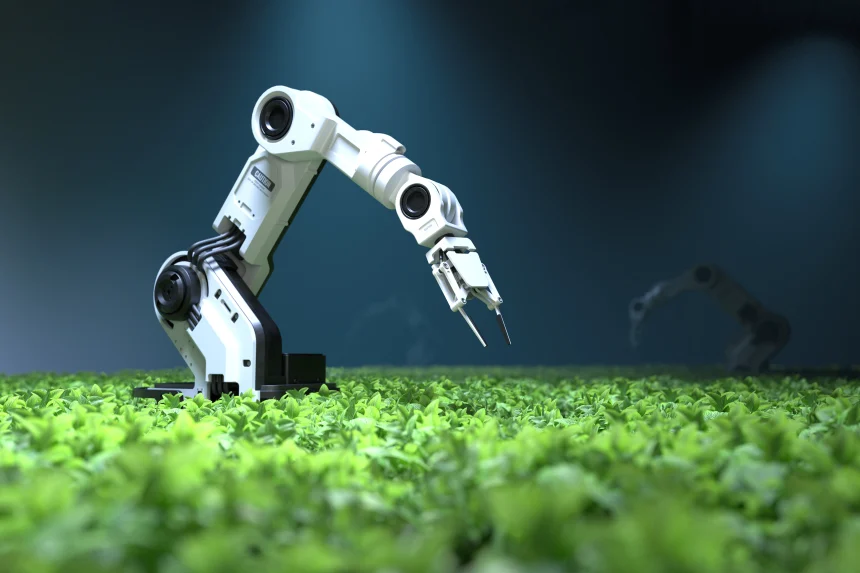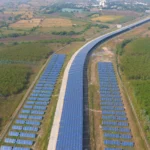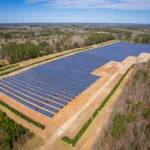Artificial intelligence (AI) is revolutionizing industries worldwide, and its role in driving sustainability is no exception. As the world grapples with pressing environmental challenges, AI has emerged as a powerful tool to address climate change, resource scarcity, and pollution. By integrating advanced technologies with sustainable practices, AI is shaping a future where economic growth and environmental preservation coexist.
This article explores how AI is transforming sustainability across various sectors and its potential to tackle some of the world’s most critical environmental issues.
Optimizing Energy Consumption
AI is playing a crucial role in improving energy efficiency and reducing carbon emissions.
- Smart Grids: AI-powered smart grids analyze energy demand and supply patterns, optimizing electricity distribution and reducing energy wastage. For example, Google’s DeepMind reduced its data center cooling energy consumption by 40% using AI.
- Renewable Energy Forecasting: AI systems predict weather patterns to optimize the performance of solar panels and wind turbines, ensuring maximum energy generation.
- Building Automation: AI-driven systems control lighting, heating, and cooling in buildings based on occupancy, significantly reducing energy consumption.
Advancing Climate Change Mitigation
AI offers innovative solutions to monitor, analyze, and mitigate the effects of climate change.
- Carbon Footprint Tracking: AI models help industries track their carbon emissions and identify areas for reduction.
- Deforestation Monitoring: Satellite imagery powered by AI detects illegal logging activities, helping governments and NGOs protect forests. For instance, Global Forest Watch uses AI to monitor deforestation in real time.
- Disaster Prediction and Response: AI predicts natural disasters like hurricanes and floods, enabling timely evacuation and resource allocation to minimize damage.
Revolutionizing Waste Management
Managing waste efficiently is a critical component of sustainability, and AI is revolutionizing the process.
- Smart Recycling Systems: AI-powered robots and sensors can sort recyclable materials from waste with high accuracy, improving recycling rates.
- Waste Reduction in Manufacturing: AI algorithms optimize production processes to minimize material waste, saving costs and resources.
- Predictive Analytics for Waste: AI systems forecast waste generation trends, enabling cities to plan better waste disposal and recycling strategies.
Sustainable Agriculture
Agriculture is a significant contributor to greenhouse gas emissions, but AI is paving the way for more sustainable farming practices.
- Precision Farming: AI analyzes soil conditions, weather forecasts, and crop health to optimize irrigation, fertilization, and pest control, reducing water and chemical usage.
- Drought Management: AI-driven tools help farmers identify drought-resistant crop varieties and plan irrigation schedules effectively.
- Food Supply Chain Optimization: AI predicts demand and manages logistics, reducing food waste and ensuring efficient distribution.
Promoting Circular Economy
A circular economy focuses on minimizing waste and maximizing resource use. AI is a key enabler of this concept.
- Product Life Cycle Analysis: AI tracks the life cycle of products to identify opportunities for reuse, repair, and recycling.
- Material Recovery: AI-powered robots recover valuable materials from discarded electronics and machinery, reducing the need for raw material extraction.
- Sharing Economy Platforms: AI algorithms power platforms like Airbnb and Uber, enabling shared use of resources and reducing environmental impact.
Advancing Sustainable Mobility
AI is transforming the transportation sector to make it more eco-friendly.
- Electric Vehicles (EVs): AI optimizes battery performance and energy management in EVs, increasing their efficiency and range.
- Traffic Optimization: AI systems analyze traffic patterns to reduce congestion and fuel consumption, lowering emissions.
- Autonomous Vehicles: Self-driving cars powered by AI reduce energy usage by maintaining consistent speeds and optimizing routes.
Enhancing Environmental Monitoring
AI is instrumental in tracking environmental health and ensuring compliance with sustainability standards.
- Air Quality Monitoring: AI-powered sensors measure air pollution levels and provide real-time data for policy intervention.
- Water Quality Management: AI systems detect pollutants in water sources and predict contamination risks.
- Wildlife Conservation: AI analyzes camera trap images to monitor wildlife populations and combat poaching.
Accelerating Green Innovation
AI fosters innovation by enabling researchers and companies to develop eco-friendly technologies.
- Sustainable Material Development: AI accelerates the discovery of biodegradable and renewable materials for packaging and manufacturing.
- Carbon Capture Technologies: AI models optimize carbon capture and storage solutions, reducing greenhouse gas emissions.
- Renewable Energy Innovations: AI supports the design and optimization of next-generation solar panels, wind turbines, and energy storage systems.
The Road Ahead: Challenges and Opportunities
While AI holds immense potential for advancing sustainability, challenges remain.
- High Energy Demand: Training AI models requires significant computational power, which can increase energy consumption. However, efforts are underway to make AI systems more energy-efficient.
- Data Accessibility: For AI to be effective, accurate and comprehensive data is crucial. Collaboration among governments, industries, and organizations is needed to address data-sharing challenges.
- Ethical Concerns: The deployment of AI must be aligned with ethical guidelines to ensure transparency and accountability.
Despite these challenges, the integration of AI into sustainability efforts offers unprecedented opportunities for innovation, efficiency, and impact.
Conclusion
AI is undeniably shaping the future of sustainability by providing innovative solutions to some of the most pressing environmental challenges. From optimizing energy usage to revolutionizing waste management, AI is empowering industries, governments, and individuals to adopt greener practices.
As we move forward, the synergy between AI and sustainability will play a pivotal role in building a resilient and eco-friendly future. By embracing AI-driven technologies, we can accelerate the transition to a sustainable world, balancing economic growth with environmental preservation.












